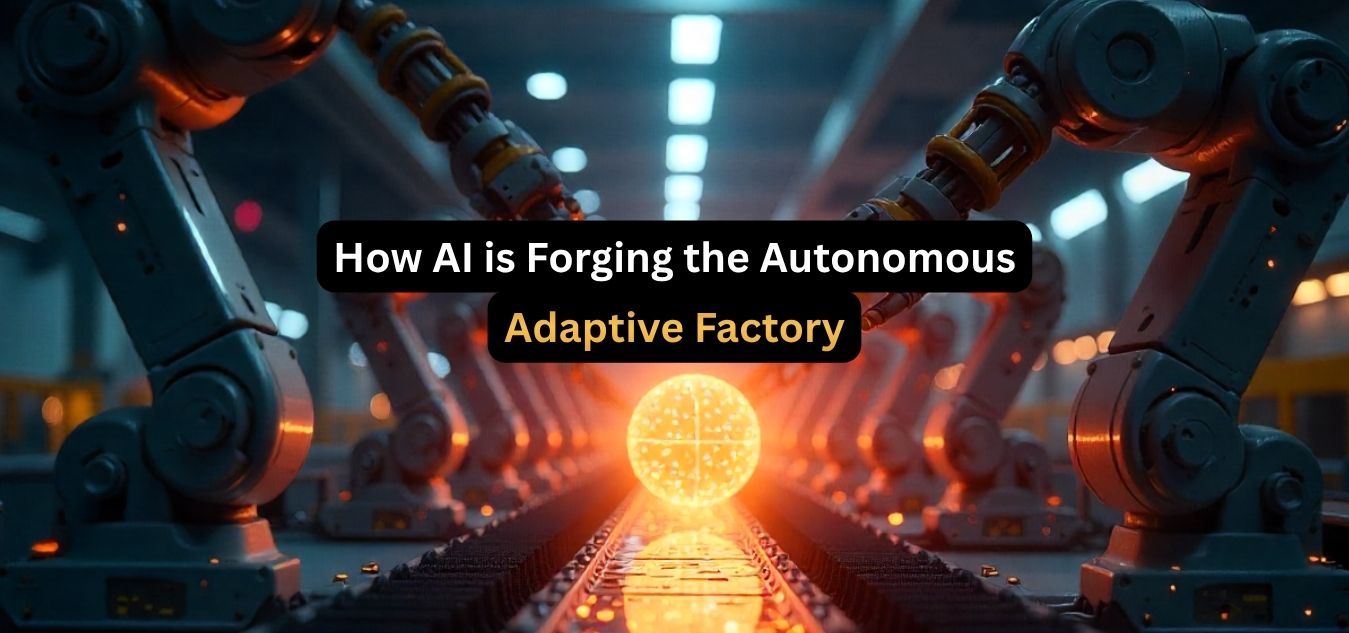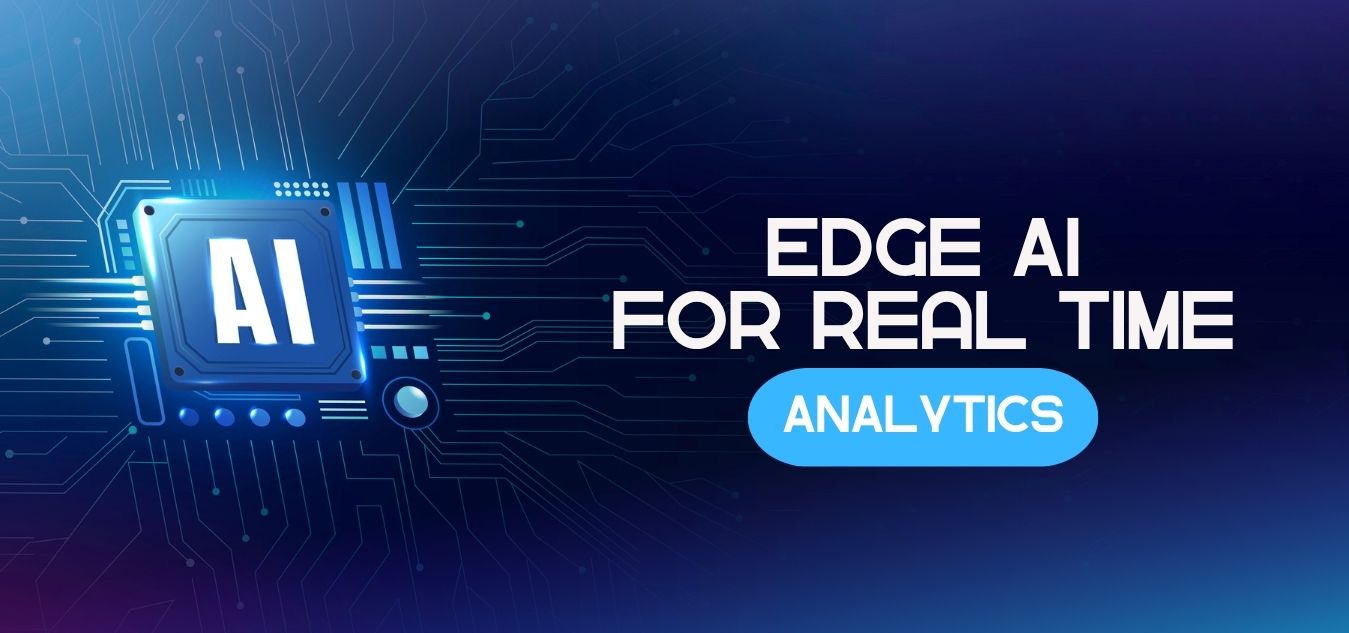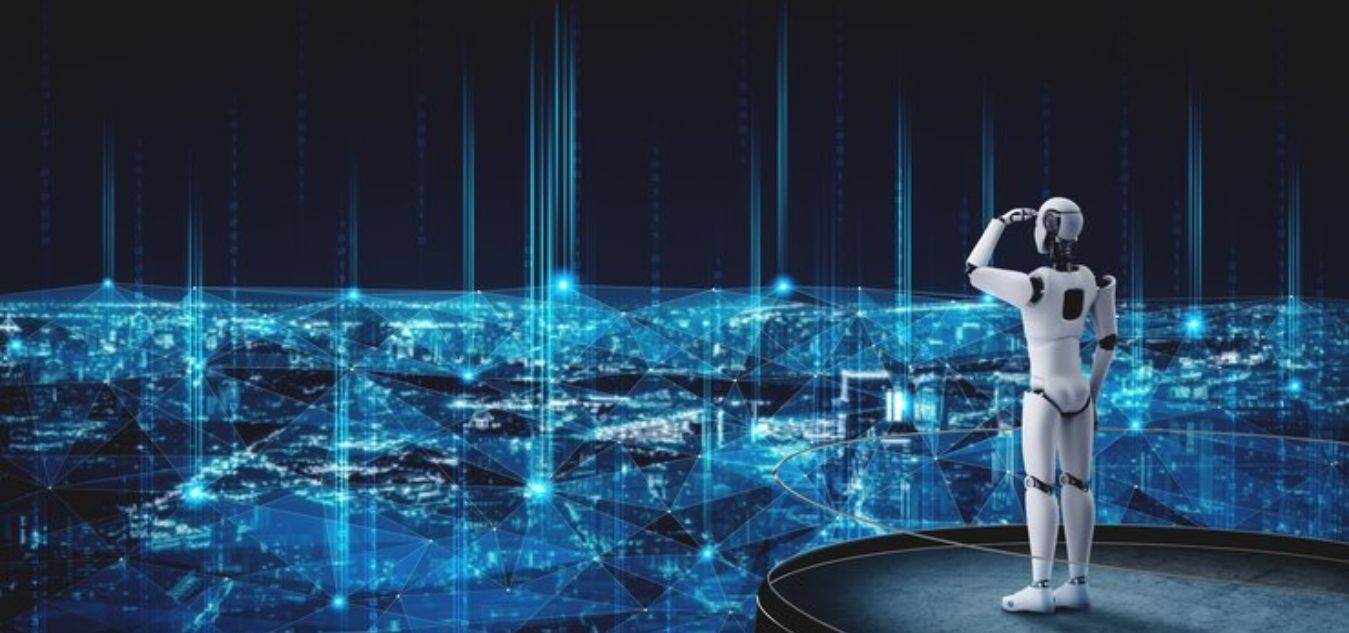
How Artificial Intelligence Future Scope Will Shape 2025
What is artificial Intelligence?
Artificial intelligence (AI) refers to the ability of machines to simulate human intelligence, enabling them to perform tasks such as reasoning, learning, and problem-solving. Key aspects of AI include:
- Machine Learning: Algorithms that allow machines to learn from data.
- Natural Language Processing (NLP): Enabling machines to understand and interact using human language.
- Computer Vision: Allowing machines to interpret visual information.
- Robotics: Machines performing physical tasks autonomously.
The artificial intelligence future scope is vast, with potential applications in industries like healthcare, automotive, finance, and entertainment. As AI evolves, it will continue to revolutionize these sectors, driving efficiency, innovation, and creating new business opportunities.
Exploring the Artificial Intelligence Future Scope
The Artificial Intelligence Future Scope promises remarkable changes by 2025, influencing how we work, live, and solve global challenges. Artificial Intelligence (AI) has shifted from being a futuristic idea to becoming a transformative force in our daily lives. Its influence spans across industries, economies, and individual experiences, making it a cornerstone of modern technological advancement.
Key Highlights of AI’s Transformative Power
- Enhancing Business Productivity: AI-powered tools are automating repetitive tasks, improving efficiency, and enabling smarter decision-making in enterprises.
- Improving Healthcare Outcomes: From predictive diagnostics to robotic surgeries, AI is revolutionizing patient care and medical research.
- Driving Innovation Across Industries: AI applications are solving global challenges, redefining creativity, and optimizing operations in unprecedented ways.
Why Understanding Artificial Intelligence Future Scope is Crucial
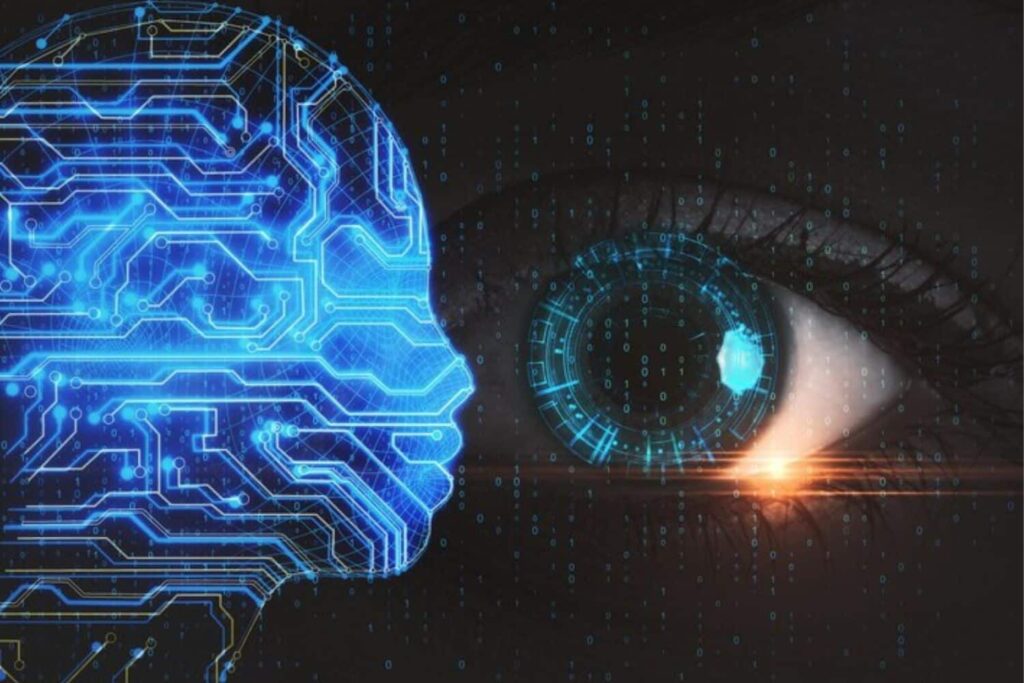
As we approach 2025, the future scope of Artificial Intelligence becomes more vital than ever. Understanding how AI evolves and adapts can help businesses, governments, and individuals harness its full potential. Key areas to focus on include:
- Expanding Applications Across Sectors: AI will play an integral role in industries like healthcare, transportation, education, and cybersecurity.
- Emerging Trends: Innovations like ethical AI, explainable AI, and AI-powered IoT will shape its adoption.
- Opportunities and Challenges: By addressing ethical dilemmas and fostering collaboration, AI can unlock unprecedented potential.
Harnessing the Artificial Intelligence Future Scope requires proactive strategies and an understanding of its potential impact on every aspect of life.
Understanding the Evolution of Artificial Intelligence

AI has seen remarkable growth in the past decade, evolving from simple rule-based systems to sophisticated technologies like machine learning (ML), deep learning, and neural networks.
The Journey of AI
- Early Days: AI started with basic rule-based systems performing predefined tasks.
- Machine Learning & Deep Learning: Today, AI is capable of self-learning and making predictions by recognizing patterns in vast datasets.
- Real-Time Decision Making: Advanced AI systems can analyze data in real-time, providing instant insights and solutions.
AI’s Expanding Role in 2025
AI’s applications now go far beyond automation or data analysis. It plays a critical role in solving complex global problems, enhancing productivity, and even reshaping human creativity.
- Advancements in Computational Power: AI’s growth is fueled by rapid improvements in processing power and access to big data.
- Focus on Ethical Practices: By 2025, ethical AI practices will become a priority to ensure transparency, fairness, and accountability.
The future of AI is not just about technological progress—it’s about how we use it to transform lives and create a more efficient, inclusive, and sustainable world.
Key Applications of AI in 2025
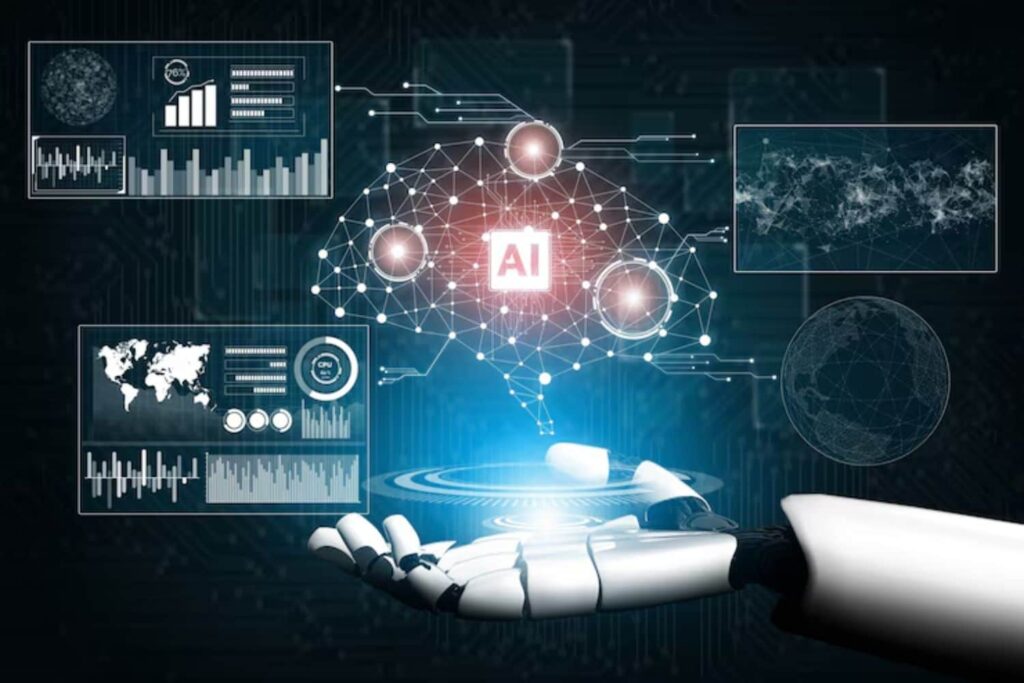
AI is already transforming industries, but its potential in 2025 is set to be far-reaching. Let’s dive into key sectors where AI will leave a significant impact:
1. Healthcare: A New Era of Precision Medicine
AI will redefine healthcare delivery through innovations such as predictive diagnostics, robotic surgery, and personalized treatments. Here’s how:
- Predictive Diagnostics: By analyzing patient data, AI can predict diseases before symptoms arise, enabling early intervention.
- Robotic Surgeries: AI-powered surgical robots will perform complex procedures with greater precision and minimal invasiveness.
- Drug Discovery: AI algorithms will accelerate the development of new drugs, reducing the time and cost of bringing treatments to market.
- Telemedicine and Virtual Care: AI will enhance remote consultations, allowing doctors to diagnose and treat patients more effectively via virtual platforms.
2. Transportation: Smarter and Safer Mobility
The transportation sector will see a revolutionary shift with AI-driven technologies:
- Autonomous Vehicles: Self-driving cars will become more prevalent, offering safer, more efficient travel options.
- Smart Traffic Systems: AI will optimize traffic management, reducing congestion and improving fuel efficiency.
- Logistics Optimization: AI will streamline supply chains, enabling faster deliveries and reducing operational costs.
3. Education: Personalized and Accessible Learning
By 2025, AI will make education more accessible and tailored to individual needs:
- Adaptive Learning Platforms: AI will create customized learning plans based on each student’s strengths and weaknesses.
- Virtual Tutors: AI-powered tutors will provide real-time assistance, making quality education available to all.
- Skill Development: AI will offer immersive training programs in virtual environments, preparing students for future jobs.
4. Business: Driving Efficiency and Innovation
Businesses across all industries will harness AI to drive growth and innovation:
- Customer Engagement: AI chatbots and virtual assistants will provide seamless, personalized customer interactions.
- Predictive Analytics: Businesses will leverage AI to analyze trends and forecast market behavior.
- Workforce Automation: Routine tasks will be automated, allowing employees to focus on strategic and creative initiatives.
5. Entertainment: Redefining Content Creation
AI will revolutionize the entertainment industry by creating immersive experiences:
- Content Personalization: Streaming platforms will use AI to recommend highly tailored content to users.
- AI-Generated Media: From music to movies, AI will assist in creating content that resonates with audiences.
- Interactive Experiences: Virtual reality (VR) and augmented reality (AR) experiences, enhanced by AI, will blur the lines between digital and physical worlds.
Emerging AI Trends in 2025
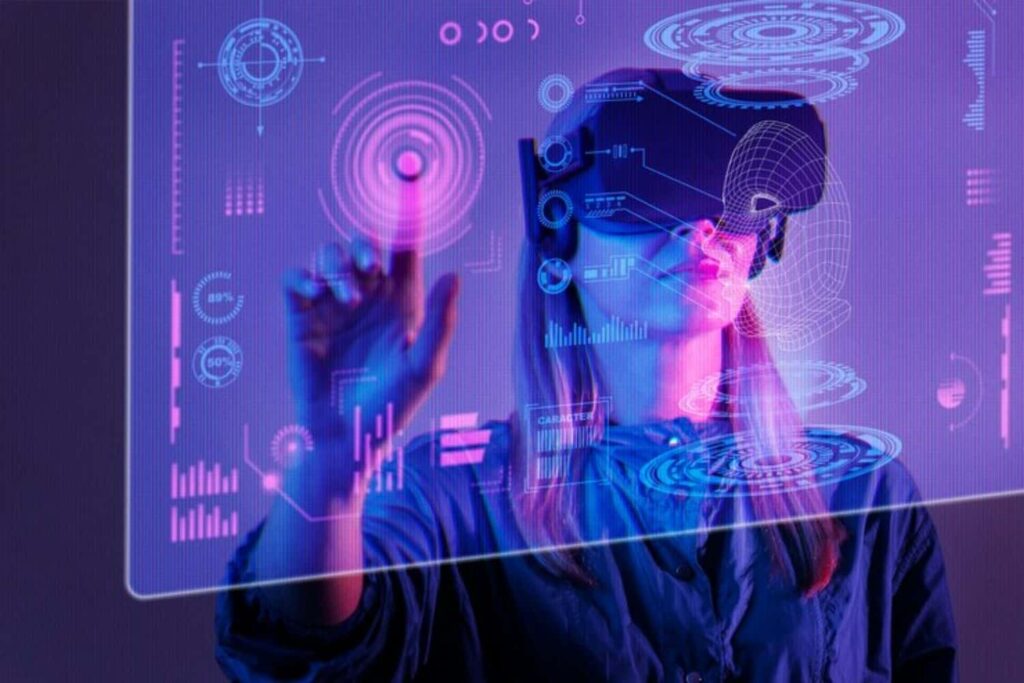
Several trends will shape AI’s trajectory by 2025, highlighting its transformative potential:
1. Ethical AI Development
Ethics in AI will take center stage as organizations and governments prioritize fairness, accountability, and transparency. AI systems will need to ensure unbiased outcomes, fostering trust among users.
2. AI and Human Collaboration
Rather than replacing humans, AI will act as a collaborative tool, augmenting human capabilities in decision-making, creativity, and innovation.
3. Sustainable AI
AI will be designed with sustainability in mind, focusing on energy-efficient algorithms and eco-friendly applications.
4. Explainable AI (XAI)
Users and organizations will demand AI systems that can clearly explain their decisions, ensuring accountability and improving adoption rates.
5. AI-Powered IoT
The convergence of AI and the Internet of Things (IoT) will enable smart ecosystems, from homes to cities, making everyday life more convenient and efficient.
AI’s Role in Transforming Industries
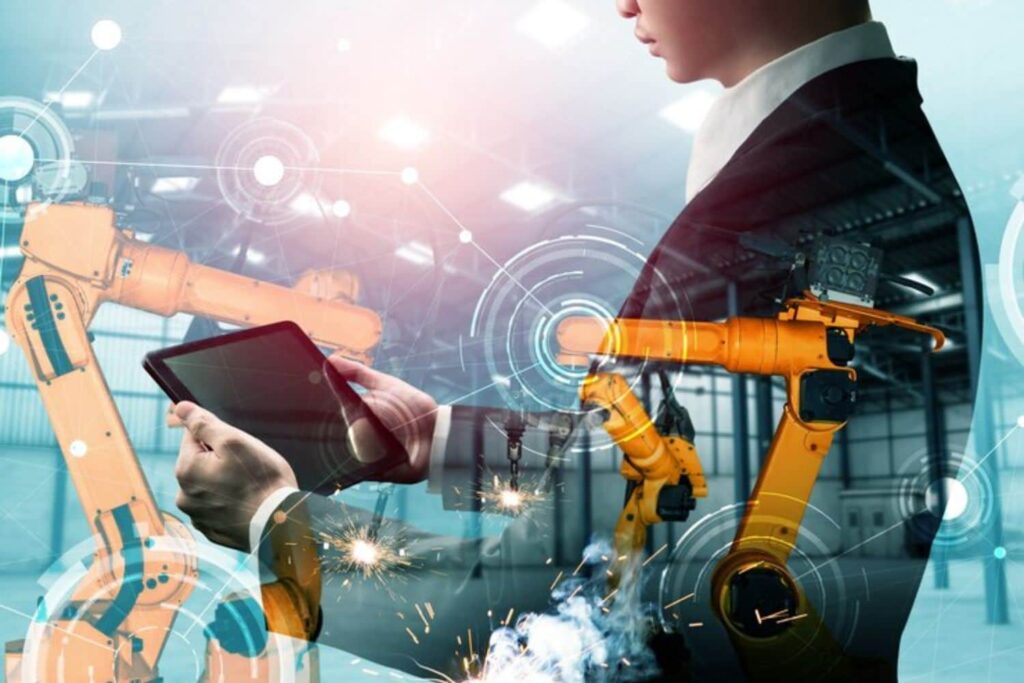
By 2025, AI’s influence will span multiple industries, each reaping unique benefits:
1. Retail and E-commerce
AI will personalize the shopping experience like never before. Retailers will use AI-driven insights to predict consumer behavior, optimize inventory, and enhance customer satisfaction. Augmented reality (AR) shopping, powered by AI, will let users visualize products in real time.
2. Agriculture
AI will empower farmers with precision farming techniques, optimizing resource usage and maximizing crop yields. AI-powered drones and sensors will monitor soil health, detect pests, and predict weather patterns.
3. Cybersecurity
With cyber threats becoming more sophisticated, AI will be indispensable in detecting and mitigating attacks. Predictive analytics will identify vulnerabilities, ensuring data security for businesses and individuals alike.
4. Energy Sector
AI will drive the transition to sustainable energy by optimizing energy production, managing smart grids, and integrating renewable sources into existing systems.
Challenges in AI Adoption
While the scope of AI is immense, its adoption comes with significant challenges:
1. Data Privacy
AI relies heavily on data, raising concerns about privacy and security. Striking a balance between innovation and ethical data usage will be crucial.
2. Skills Gap
The rapid growth of AI technologies requires a skilled workforce. Educational institutions and businesses must collaborate to upskill professionals in AI-related fields.
3. Ethical Concerns
From biased algorithms to job displacement, ethical dilemmas in AI implementation need careful consideration.
4. Implementation Costs
For small and medium-sized enterprises (SMEs), the high cost of AI implementation can be a barrier to adoption.
The Long-Term Impact of AI Beyond 2025
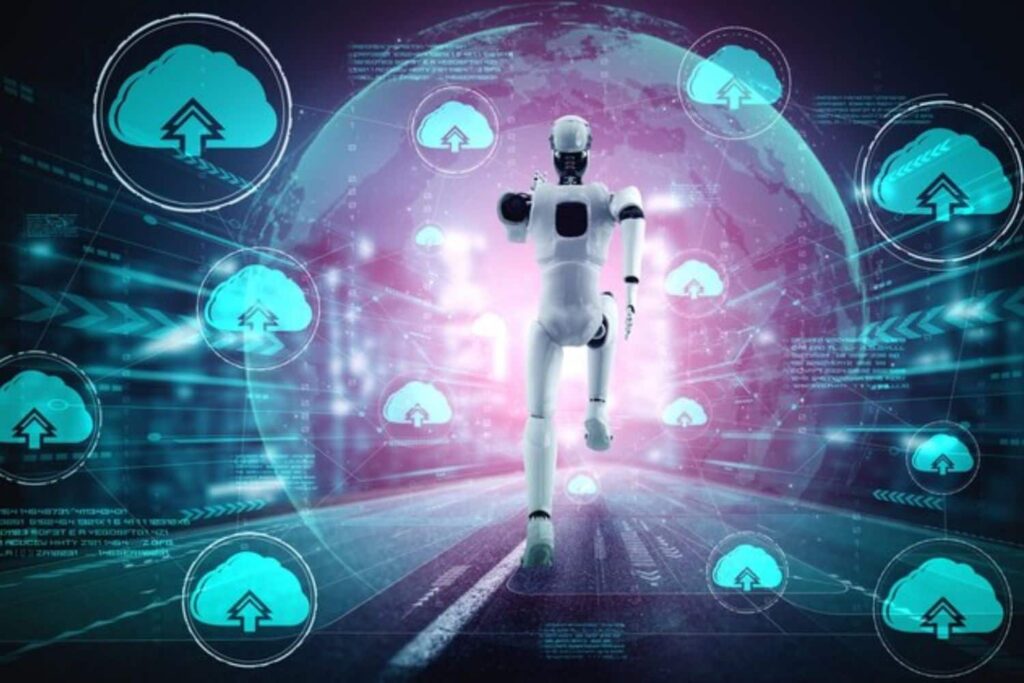
As artificial intelligence continues to evolve, the artificial intelligence future scope promises groundbreaking advancements that will reshape industries and societies alike. Its impact will extend far beyond 2025:
1. Combating Climate Change
AI will optimize resource usage and monitor environmental changes, contributing significantly to climate change mitigation.
2. Space Exploration
AI will play a key role in automating spacecraft operations and analyzing extraterrestrial data, advancing our understanding of the universe.
3. Healthcare Breakthroughs
Personalized medicine and AI-driven gene editing will become mainstream, offering hope for curing previously untreatable diseases.
4. AI for Social Good
AI will empower governments and non-profits to tackle global challenges such as poverty, inequality, and disaster management.
How to Prepare for the AI Revolution?
As AI reshapes 2025, individuals and organizations must adapt to this changing landscape:
- Invest in Education: Gain knowledge of AI technologies through courses and certifications.
- Adopt AI Responsibly: Ensure ethical practices in AI implementation.
- Collaborate with Experts: Partner with AI specialists to maximize the technology’s potential.
- Focus on Sustainability: Leverage AI for eco-friendly solutions.
Artificial intelligence and the future of humans
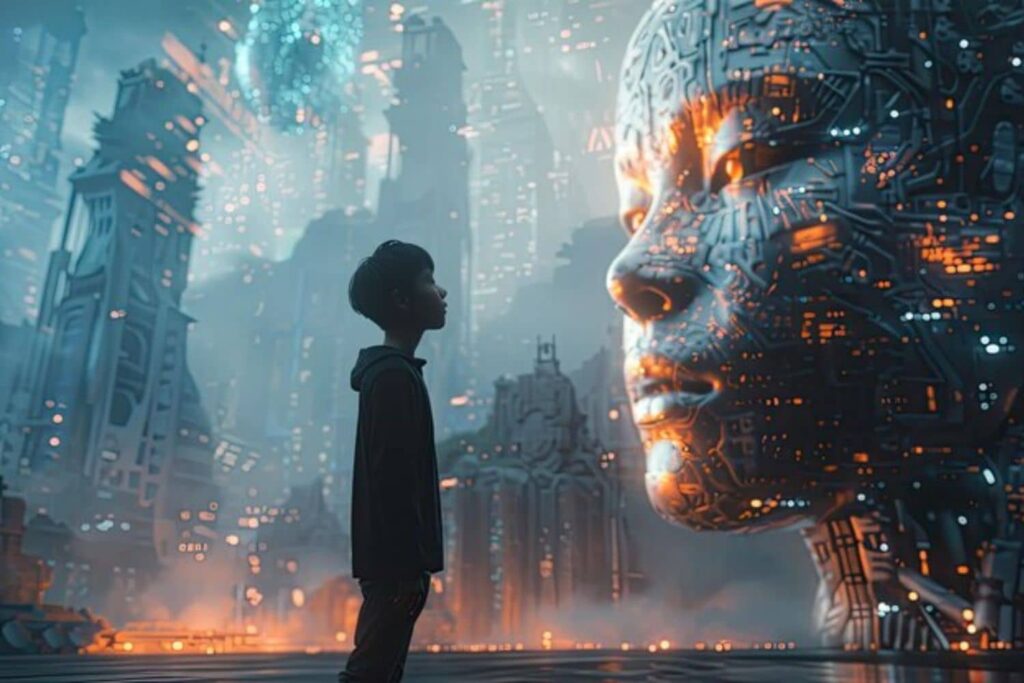
Artificial intelligence (AI) is transforming the way humans live, work, and interact. It has the potential to solve complex problems, automate mundane tasks, and unlock new opportunities. However, it also raises critical questions about ethics, employment, and societal impact. Below is a breakdown of AI’s influence on the future of humans:
Key Impacts of AI
- Enhanced Productivity: AI-driven tools streamline workflows and increase efficiency across industries.
- Healthcare Revolution: Predictive analytics and personalized treatments save lives.
- Education Innovation: AI enables adaptive learning platforms tailored to individual needs.
- Ethical Concerns: Bias in AI algorithms and data misuse remain critical challenges.
- Job Disruption: Automation replaces repetitive roles but creates demand for AI specialists.
| Aspect | Positive Impact | Challenges |
|---|---|---|
| Productivity | Faster processes | Over-dependence on automation |
| Healthcare | Accurate diagnosis and treatment | Ethical data management |
| Education | Tailored learning experiences | Digital divide |
| Employment | New AI-related careers | Job displacement |
How AI will change the world?
Artificial Intelligence (AI) is reshaping our world by transforming industries, revolutionizing tasks, and creating endless possibilities for innovation. Here’s how AI is poised to change the world:
Key Changes AI Will Bring
- Automation of Tasks: From manufacturing to customer service, AI automates repetitive tasks, boosting efficiency.
- Enhanced Healthcare: AI-powered tools enable early disease detection, personalized treatments, and advanced robotic surgeries.
- Smarter Cities: AI optimizes traffic, energy use, and public safety in urban areas, enhancing livability.
- Improved Education: Adaptive learning systems cater to individual student needs, making education accessible to all.
- Revolutionized Workplaces: AI enhances decision-making, fosters creativity, and reduces human error.
AI’s Impact at a Glance
| Area | Impact | Examples |
|---|---|---|
| Healthcare | Faster, accurate diagnosis | AI in radiology |
| Transportation | Autonomous vehicles, traffic management | Self-driving cars |
| Retail | Personalized shopping experiences | AI-powered recommendations |
| Education | Customized learning paths | AI tutors |
How Far Will Artificial Intelligence Go?
The artificial intelligence future scope is vast, with its potential to revolutionize industries and redefine daily life. As AI continues to evolve, its applications are expanding, raising questions about how far it can truly go. Here’s an in-depth look:
Major Advancements in AI:
- Predictive Analysis: AI-driven algorithms forecast trends in finance, healthcare, and logistics with unmatched accuracy.
- Creative Solutions: From generating art and music to assisting in content creation, AI enhances human creativity.
- Healthcare Evolution: AI improves diagnostics, personalizes treatments, and accelerates drug discovery.
Opportunities and Challenges:
| Aspect | Present Applications | Future Possibilities |
|---|---|---|
| Automation | Simplifies repetitive tasks | Potential to reshape entire jobs |
| Human Collaboration | Supports decision-making | AI-human synergy in innovations |
| Ethics | Early-stage frameworks | Complex global regulations |
| Sustainability | Energy-efficient solutions | Driving global environmental goals |
What kind of jobs can I get with AI?
Artificial Intelligence (AI) is transforming industries, creating diverse job opportunities for tech enthusiasts and professionals. Here’s a detailed guide to help you explore potential AI careers:
Key AI Job Roles
- Data Scientist
Experts analyze and interpret complex data to provide actionable insights. - Machine Learning Engineer
Develops algorithms and models to enable systems to learn and improve automatically. - AI Research Scientist
Conducts cutting-edge research to advance AI technologies. - AI Software Developer
Builds AI-driven software solutions, including chatbots and recommendation systems. - Business Intelligence Developer
Creates data visualization tools to enhance decision-making.
| Job Role | Key Responsibilities | Required Skills |
|---|---|---|
| Data Scientist | Analyze and interpret large datasets | Python, R, Statistics, SQL |
| Machine Learning Engineer | Build machine learning models | Python, TensorFlow, PyTorch, Algorithms |
| AI Research Scientist | Innovate and improve AI systems | Deep Learning, AI Frameworks, Research |
| AI Software Developer | Develop AI-powered applications | Programming, APIs, AI Tools |
| Business Intelligence Dev | Design tools for strategic decisions | BI Tools, Data Analysis, Communication |
Industries Hiring AI Professionals
- Healthcare: AI-powered diagnostics and drug discovery.
- Finance: Fraud detection and algorithmic trading.
- Retail: Personalized shopping experiences.
AI jobs require a mix of technical expertise, problem-solving skills, and creativity. With industries increasingly adopting AI, professionals equipped with these skills can secure fulfilling roles in this cutting-edge field.
Is AI hard to learn?
Artificial Intelligence (AI) has become a buzzword, prompting many to ask: is it hard to learn? The answer depends on your background and commitment. While AI involves technical topics like programming, mathematics, and machine learning, it is not insurmountable. With proper guidance and practice, anyone can master it.
Key Factors Influencing AI Learning:
- Programming Knowledge: Basic programming skills, especially in Python, are a great starting point.
- Mathematical Foundations: Understanding linear algebra, calculus, and statistics is crucial but can be learned gradually.
- Resources and Tools: Beginner-friendly platforms like Coursera, edX, and TensorFlow tutorials simplify the process.
- Dedication: Consistent practice and working on real-world projects are essential for success.
AI Learning Difficulty:
| Aspect | Difficulty Level | Tips to Ease Learning |
|---|---|---|
| Programming Skills | Moderate to Advanced | Start with Python tutorials. |
| Mathematics | Moderate | Use visual aids and online resources. |
| Algorithms & Models | Challenging | Start with simple ones like Decision Trees. |
| Tools & Frameworks | Moderate | Follow beginner guides for tools like TensorFlow. |
The artificial intelligence future scope motivates learners to explore AI’s potential in automation, healthcare, and smart technologies. With dedication, structured learning, and hands-on projects, mastering AI is achievable and rewarding.
What will AI be able to do in 20 years?
Artificial Intelligence (AI) is advancing at a rapid pace, and its future scope over the next 20 years will reshape industries and everyday life. From healthcare to transportation, the potential of AI is vast. Here’s what to expect:
Key Predictions
- Medical Breakthroughs: AI will revolutionize healthcare by predicting diseases, developing personalized treatments, and assisting in surgeries with greater precision.
- Advanced Automation: Industries will experience complete automation, including smart factories and self-driving vehicles, enhancing productivity and efficiency.
- Education Evolution: AI will provide personalized learning experiences, offering tailored content and real-time feedback, making education more accessible globally.
- Climate Solutions: With the artificial intelligence future scope, AI will optimize resource usage, predict climate patterns, and design solutions for environmental sustainability.
- Creative Innovations: AI will collaborate with humans in generating art, music, and literature, pushing creative boundaries and fostering new forms of expression.
AI in 20 Years: Summary
| Field | Potential Impact |
|---|---|
| Healthcare | Disease prediction, personalized treatments, AI surgeons |
| Transportation | Fully autonomous vehicles and traffic management |
| Education | Personalized learning and global accessibility |
| Environment | Climate modeling and sustainable innovations |
| Creativity | Co-creation of art, music, and entertainment |
The artificial intelligence future scope is filled with groundbreaking possibilities, combining advanced technology and human creativity to solve critical challenges and enhance global well-being.
Conclusion
By 2025, Artificial Intelligence will transform industries, enhancing efficiency and solving complex problems. To fully realize its potential, responsible development and collaboration are key. The artificial intelligence future scope is vast, and the real challenge lies in how we shape it.
Frequently Asked Questions (FAQs)
Which AI field is best for future?
The best AI field for the future depends on industry needs, but areas like machine learning, natural language processing, and computer vision are gaining significant traction. These fields enable advancements in automation, healthcare, and data analysis, offering promising career opportunities and innovation potential for years to come.
Could AI take over the world?
AI is unlikely to “take over the world.” While the artificial intelligence future scope holds immense potential for innovation and transformation, it’s designed to assist humans, not replace them. Ethical considerations and responsible development ensure AI complements our progress, enhancing productivity, not disrupting societal balance.


